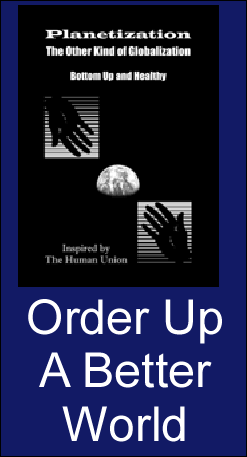The objection was that jihad is not one of the five principles of Islam. These principles, or pillars, are: 1) The testimony of Faith in the One God and His praised prophet Mohammed as His messenger; 2) Prayer; 3) Charity (Zakat); 4) Pilgrimage to Mecca (Hajj); and 5) Fasting in the month of Ramadan.
The reader is formally right, and Mr. Kurtzer erred on two counts: that jihad is not one of the five principles of Islam; and also on the meaning of jihad. Jihad in Arabic means strife, strenuous endeavour, or making an earnest effort. The word, as in the English word “strive,” can imply “struggling” or “fighting” to attain, to improve, or to change.
When the Prophet Mohammed embarked on his mission to liberate a society (in Mecca and in Arabia) which had degenerated to the brink of economic and moral collapse through pantheism, usury, and slavery, he preached to this society in order to discipline and civilize its members. The five pillars were the crucial part of his organizing effort.
However, as he moved to al-Madinah to establish the first Muslim city-state, there was a danger that the mission of Islam could be eliminated in the cradle by the financier oligarchy in Mecca and its allies in western Arabia.
Therefore, the Prophet said that Muslims were “obliged” to defend with weapons this newly born nation, and the Holy Quran included a divine order to the Prophet to encourage Muslims to mobilize for war. “To those against whom war is made, permission is given [to fight] because they have been wronged; and verily, Allah is most capable of their aid. Those who have been expelled from their homes in defiance of the right [for no cause other than that] they say ‘Our Lord is Allah.’
Had not Allah checked one set of people by another, surely ruin would have been brought upon many monasteries, churches, synagogues, and mosques where the name of Allah is commemorated in abundant measure.” (The Holy Quran, Surah 22 Al-Hajj, verses 39-40).
As these verses imply, jihad is not launched only to defend Muslims, but also to defend other righteous faiths. At that point in Islam’s history, jihad in the military sense became a faridha (obligation). But jihad, Muslims learn, can only be conducted under specific terms: For example, authorization of the religious leadership of the society; and that, for the purpose of fending off an aggressor’s force or supporting an oppressed people and establishing justice.
Individuals and groups do not have the right to issue a fatwa (religious decree); jihad cannot be launched unless leadership be proven to be corrupt or treasonous, when every other rational and reasonable means is exhausted in achieving objectives which must accord with the universal principle of justice.
According to reliable and undisputed sources of Prophet Mohammed’s tradition, the Prophet once received a Muslim army division, who were assigned to a difficult military mission, and returned victoriously. Mohammed said: “I welcome a people who accomplished the lesser jihad, but still have to fulfill the greater jihad.” They asked: “But what is the greater jihad, O messenger of God?” He replied: “The jihad of the soul.”
The greater jihad is the jihad to moderate and perfect the human soul in the pursuit of happiness and justice, for the individual and for society as well. This always reminded the Muslims that the real mission of Islam is not military conquest, as with previous empires, but to establish on Earth a human society which is good and just.
In that vein, Muslims from the 7th-13th Centuries established a great renaissance of knowledge and a civilization which extended its scientific, philosophical, and cultural fruits from China to Europe over many centuries. This can only be revived and replicated today, in the Muslim world, through the “greater jihad.”
Australian Alert Service Vol. 4 No. 28 August 1, 2002
An editorial from the Executive Intelligence Review July 26, 2002
www.cecaust.com.au
